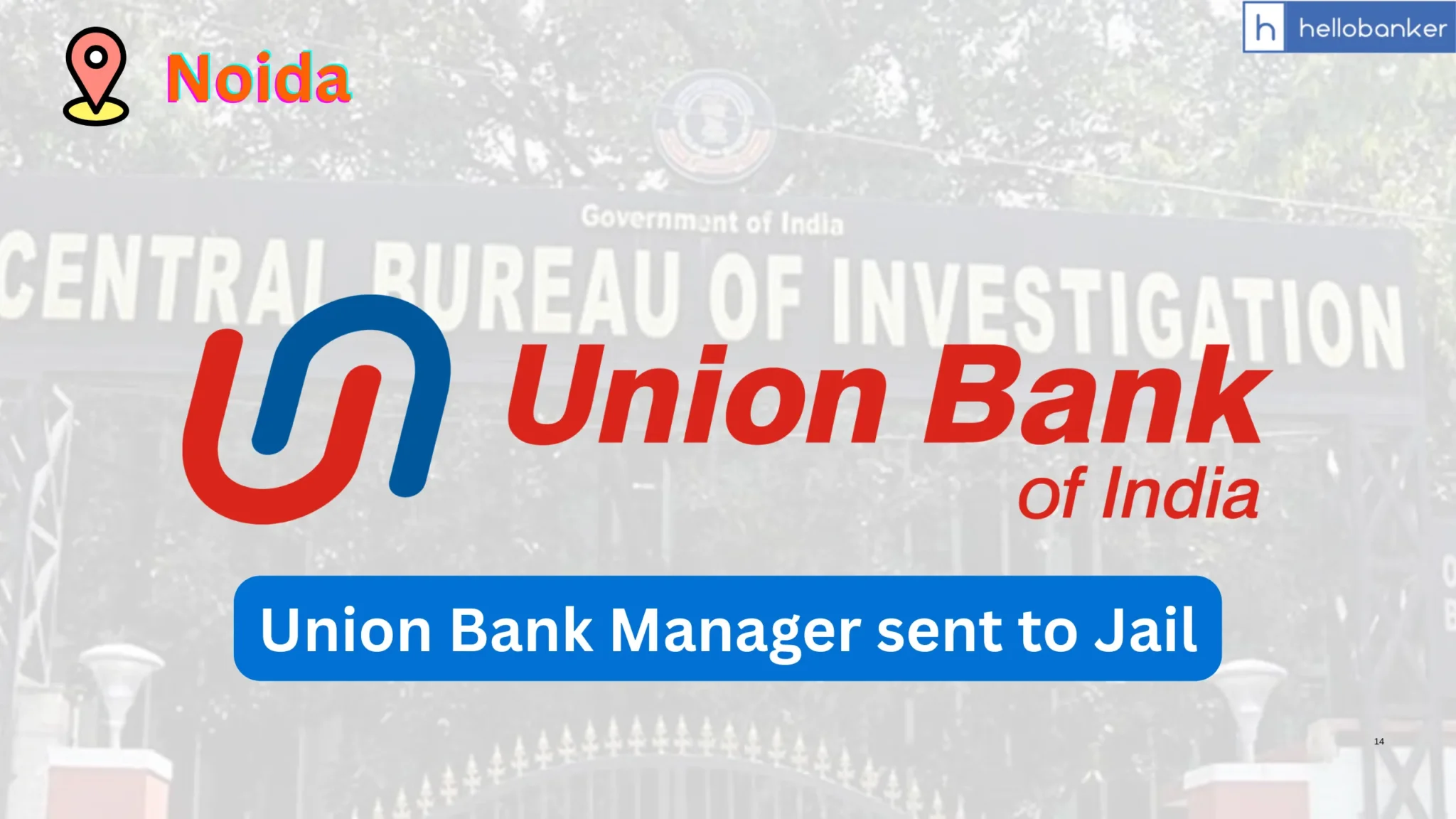Ghaziabad: In a significant ruling, the CBI Court in Ghaziabad sentenced Manoj Srivastava, former Branch Manager of Union Bank of India, to four years in prison for his involvement in a ₹40 lakh bank fraud case. Srivastava was found guilty of misusing his position to approve a loan based on falsified documents, resulting in substantial losses for the bank. The court’s decision marks an important step in the fight against financial misconduct in India’s banking sector.
Case Overview: A Web of Deception
The Central Bureau of Investigation (CBI) initiated its probe into this bank fraud case over a decade ago, reflecting the seriousness of financial crimes within India’s banking sector. On December 14, 2010, the CBI registered a case against Manoj Srivastava and several accomplices due to concerns over their fraudulent activities. While serving as the Branch Manager at Union Bank’s Noida SSI Branch from May 2007 until June 2009, Srivastava allegedly engaged in a criminal conspiracy that undermined the integrity of the banking system.
During this period, Srivastava, in coordination with accused parties like Om Prakash Maheshwari, Rashmi Srivastava, Prithvi Raj Saxena, and Manish Kothari, sanctioned a substantial loan of ₹40 lakh under suspicious circumstances. Utilizing fake and forged documents, they managed to deceive the bank, leading to significant financial losses.
A Step Towards Justice
After years of investigation and legal proceedings, the CBI submitted its chargesheet on September 29, 2012. The complexities of the case delayed the judicial process, with charges being framed by the court only on November 3, 2017. The road to justice took an unexpected turn when, on August 13, 2025, Srivastava decided to plead guilty to the charges. His guilty plea was accepted by the Special Judge at the CBI Anti-Corruption Court in Ghaziabad, leading to the final sentencing on September 25, 2025.
The court’s decision to convict Srivastava serves as a powerful reminder of the legal repercussions associated with financial malpractice. In its judgment, the court emphasized the need for accountability and transparency within banking institutions.
| Key Facts | Details |
|---|---|
| Defendant | Manoj Srivastava |
| Bank | Union Bank of India |
| Loan Amount | ₹40 lakh |
| Fraud Duration | May 2007 – June 2009 |
| Imprisonment | 4 years |
| Fine Imposed | ₹30,000 |
Wider Implications for the Banking Sector
The sentencing of Srivastava also raises broader discussions regarding the need for stringent regulations in the Indian banking sector. Given the rising incidents of fraud and financial mismanagement, banking institutions must prioritize transparency and enhance their internal audits. By doing so, they can safeguard against fraudulent activities and promote a culture of ethical behavior.
For instance, many banks have recently adopted advanced fraud detection systems to identify suspicious transactions promptly. Financial institutions are also investing in training their employees not only to adhere to regulatory compliance but to foster an ethical organizational culture.
Furthermore, the RBI has been proactive in addressing such concerns, implementing various policies aimed at reducing financial fraud and bolstering the integrity of the banking system. As the economy continues to evolve, ensuring that banks are not only profitable but also trustworthy is essential for maintaining public confidence.
Conclusion: A Call for Vigilance
The CBI’s diligent pursuit of justice in the case against Manoj Srivastava serves as a powerful message to others in the banking sector. As financial fraud continues to pose significant risks to the economy, it is crucial for both regulatory bodies and banking institutions to remain vigilant in their efforts to combat these illegal activities. The collective responsibility of all stakeholders is essential for protecting the financial system and maintaining the trust of the public in India’s robust banking landscape.
With this ruling, the CBI not only addresses an isolated incident of fraud but also reinforces the imperative of ethical conduct and accountability in the banking industry. Moving forward, it remains vital for both current and aspiring bank officials to recognize the real consequences of fraud and to commit to upholding the trust granted to them by their institutions and customers alike.
Bankerpedia’s Insight 💡
The sentencing of Manoj Srivastava for bank fraud highlights critical vulnerabilities in India’s banking sector. This case serves as a stark reminder of the need for stringent regulatory oversight and ethical practices to prevent such breaches of trust. Losses like these can erode public confidence and stability within the financial system. For readers, this underscores the importance of diligence in financial dealings, advocating for transparency and accountability. As stakeholders in a growing economy, we must remain vigilant to safeguard our financial institutions and uphold integrity in banking.
How Does This Affect the Banking Ecosystem? 🏦
- Bank Employees → Increased scrutiny and potential distrust among bank employees.
- Bank Management → Increased scrutiny and potential policy changes in lending practices.
- Bank Customers → Increased scrutiny and potential delays in loan processing.
- Investors / Shareholders → Increased scrutiny and potential reputational risk for investors.
- Regulators (RBI, SEBI, Govt.) → Increased scrutiny on banking practices and compliance enforcement.
- General Public → Increased public distrust in banking institutions’ integrity.
Research References 📚
Loved our Research? ❤️
Bankerpedia turns financial confusion into clarity!
Subscribe to our YouTube channel for unbiased insights, financial literacy & practical banking wisdom.










